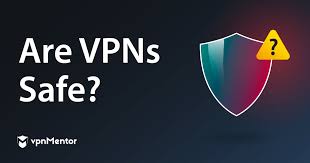Is VPN Safe? Exploring the Security of Virtual Private Networks
In today’s digital age, privacy and security have become paramount concerns for internet users. With the rise of online threats and data breaches, many people are turning to Virtual Private Networks (VPNs) as a solution to protect their online activities. But the question remains: Is VPN safe?
VPNs work by creating a secure, encrypted connection between your device and the internet. This encryption ensures that your data is protected from prying eyes, such as hackers, government agencies, or even your Internet Service Provider (ISP). By routing your internet traffic through a remote server, VPNs also help mask your IP address, adding an extra layer of anonymity.
While VPNs can indeed enhance your online security and privacy, it’s essential to choose a reputable provider. Not all VPN services are created equal, and some may compromise your data rather than protect it. Look for VPN providers that offer strong encryption protocols, a no-logs policy, and robust security features.
It’s worth noting that using a VPN does not make you invincible online. While it can prevent certain types of cyber attacks and surveillance, it won’t shield you from all threats. It’s crucial to practice good cybersecurity habits in conjunction with using a VPN, such as keeping your software up to date, using strong passwords, and being cautious about the websites you visit.
In conclusion, when used correctly and with a reliable provider, VPNs can be a valuable tool for enhancing your online security. They offer an added layer of protection against cyber threats and help safeguard your privacy in an increasingly interconnected world. Remember to do your research before choosing a VPN service and stay informed about best practices for staying safe online.
Assessing VPN Security: Trustworthiness, Risks, and Safe Usage Guidelines
- Can VPNs be trusted?
- Is VPN free and safe?
- Are there any risks of VPN?
- Is it safe to use VPN all the time?
Can VPNs be trusted?
The question of whether VPNs can be trusted is a common concern among internet users seeking to enhance their online security and privacy. While VPNs offer encryption and anonymity benefits, trust ultimately lies in the hands of the VPN provider. It is crucial to choose a reputable VPN service that prioritises user privacy, follows a strict no-logs policy, and employs robust security measures. By conducting thorough research and selecting a trustworthy VPN provider, users can feel more confident in entrusting their online activities to a VPN for enhanced protection against cyber threats.
Is VPN free and safe?
When considering free VPN services, it’s essential to exercise caution and be mindful of potential risks. While some free VPNs may offer basic security features, many come with drawbacks such as limited server options, slower connection speeds, and intrusive ads. Moreover, some free VPN providers may collect and sell user data to third parties, compromising your privacy instead of protecting it. To ensure both safety and quality when using a VPN, it’s advisable to opt for reputable paid services that prioritise user privacy and security. Remember, when it comes to VPNs, you often get what you pay for in terms of reliability and protection.
Are there any risks of VPN?
When considering the safety of VPNs, it’s important to acknowledge that, like any technology, they come with potential risks. While VPNs can enhance your online security and privacy by encrypting your data and masking your IP address, there are still some risks to be aware of. One common concern is the trustworthiness of VPN providers; choosing a reputable provider with a strong track record is crucial to mitigating this risk. Additionally, using a VPN may slightly slow down your internet connection due to the encryption process. It’s also essential to be mindful of potential leaks in the VPN connection that could expose your real IP address. Overall, while there are risks associated with using a VPN, being informed and selecting a reliable provider can help minimise these concerns and maximise the benefits of enhanced online security and privacy.
Is it safe to use VPN all the time?
Using a VPN all the time can enhance your online security and privacy by encrypting your internet traffic and masking your IP address. However, whether it is safe to use a VPN constantly depends on your specific needs and activities. While a VPN can protect you from potential threats when browsing the web, it may also slow down your internet connection slightly due to the encryption process. Additionally, some websites or services may block VPN traffic, which could impact your ability to access certain content. It’s important to consider these factors and weigh the benefits against any potential drawbacks when deciding whether to use a VPN all the time.

